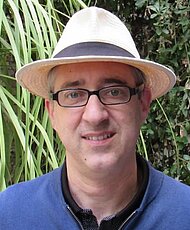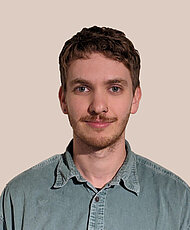Reference frames are ubiquitous in physics. Every time we set up an experiment, or merely describe the behaviour of a physical system, we do so by using, implicitly or explicitly, a reference frame. Broadly, a reference frame is an object relative to which we determine the properties of the physical systems we wish to study. For example, there are reference frames for space —like a ruler whose marks we use to determine the location of particles—, and for time —like a clock whose ``ticks’’ we use to determine the motion of particles.
If one takes an operational perspective, in which physical quantities are defined by what we prepare and measure in the lab, then one can understand space and time in terms of “what rulers and clocks measure.” Historically, this operational thinking has been very successful in physics. For instance, it was instrumental in Einstein’s route towards developing special and general relativity.
When reasoning about space and time operationally, we normally assume that the objects we use as reference frames are classical systems —like a macroscopic, heavy ruler, or a clock with sharply defined hands. However, all physical systems are, as far as we know, ultimately quantum. In the light of this observation, in this group we study how physics “looks like” from the perspective of a quantum reference frame. More specifically, we are interested in answering questions including the following:
— Can one “jump” from one quantum reference frame to another?
— How would the physical laws relative to one quantum reference frame change (if at all) when one changes to another quantum reference frame?
— What is the meaning of the “rest frame” of a quantum mechanical system which can be in states of superposition of different momenta?
— What happens to our operational notions of space and time when our rulers and clocks behave quantum mechanically?
These questions are particularly important to our understanding of the gravitational properties of quantum mechanical systems, where the quantum properties of rulers and clocks play a significant role.
In [1] we have established a method for “jumping” between quantum reference frames and studied the covariance of physical laws under this more general set of transformations. We have shown, in particular, that the weak equivalence principle (that is, the local physical equivalence between acceleration and gravity) can be extended to the quantum domain, by considering “superpositions” of accelerations / gravitational fields. On the other hand, the transformation rule between quantum reference frames implies that the notions of entanglement and superposition are no longer invariant, but depend on the quantum reference frame.
In [2] we have defined quantum reference frame transformations for relativistic particles and given an operational definition to the concept of spin in special relativity, where the momentum degrees of freedom of a particle get entangled with the internal degrees of freedom. In doing so, we have defined the rest frame of a quantum particle in terms of “superposition of boost” transformations.
In [3] we have studied the nature of spacetime events in scenarios where quantum systems act as gravitational sources. We have shown that, in contrast to the classical notion, whether an event is localised in time or not depends on the temporal quantum reference frame (quantum clock) we are using. Importantly, we can always find a temporal reference frame for which a given event is well-localised in time. This is a physical realization of the result from [4] developed in connection to the process matrix framework. We have argued that the impossibility to find a temporal reference frame for which all events are sharply localised in time is a signature of an indefinite causal structure, relating quantum reference frames with the field of indefinite causality.

[1] Giacomini, F., Castro-Ruiz, E., & Brukner, Č. (2019). Quantum mechanics and the covariance of physical laws in quantum reference frames. Nature communications, 10(1), 1-13.
[2] Giacomini, F., Castro-Ruiz, E., & Brukner, Č. (2019). Relativistic quantum reference frames: the operational meaning of spin. Physical review letters, 123(9), 090404.
[3] Castro-Ruiz, E., Giacomini, F., Belenchia, A., & Brukner, Č. (2020). Quantum clocks and the temporal localisability of events in the presence of gravitating quantum systems. Nature Communications, 11(1), 1-12.
[4] Guérin, P. A. and Brukner, C. ,(2018) Observer-dependent locality of quantum events, New J. Phys. 20, 103031 (2018).
Brukner Group

Caslav Brukner
Stellv. InstitutsdirektorGruppenleiter+43 (1) 4277 - 72582

Luca Apadula
Doktorand

Veronika Baumann
Postdoktorandin

Carlo Cepollaro
Doktorand (Univie)

Linqing Chen
Postdoktorandin

Anne-Catherine De la Hamette
Doktorandin (Univie)

Viktoria Sophia Kabel
Doktorandin+43 (1) 4277 - 72580

Robert Oeckl
Visiting Senior Scientist

Stefano Osnaghi
Postdoktorand (Univie)

Martin Johannes Renner
Doktorand (Univie)

Robin Simmons
Doktorand (Univie)